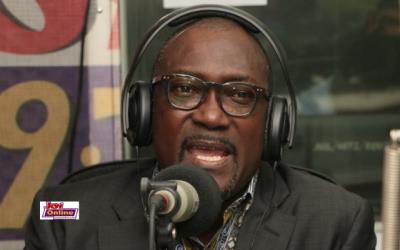The Executive Director of the Ghana Center for Democratic Development (CDD-Ghana) has defended the Supreme Court’s ruling upholding the right of Deputy Speakers of Parliament to vote.
According to Prof. H. Kwasi Prempeh, it is “a constitutionally correct decision, no matter what one might feel about the outcome politically.”
The Apex Court presided over by Justice Jones Dotse ruled that a Deputy Speaker can be counted during the formation of a quorum for Parliamentary decision-making and participate in voting while presiding over the parliamentary business.
There has been an enormous uproar following the judgement. While the Majority Caucus described it as a ‘refreshing’ outcome.
Many, particularly the Minority in Parliament, says the ruling is absurd and could destroy the processes in the House.
But Prof Prempeh argued that “the longevity of a practice does not cloak that practice with constitutionality.”
“No matter how longstanding a practice, its constitutionality cannot be established or presumed until and unless it is challenged in an appropriate constitutional case. Thus, the fact that this is how Parliament has done its business all this while is not a good enough argument, constitutionally speaking.”
Prof. Prempeh also believes that the influence of Deputy Speakers has been overestimated in the ongoing controversy.
“Presiding does not, in and of itself, present much of a conflict of interest to cause a Deputy Speaker to forfeit their vote, especially if he or she were to be required by House rules to vote last or cast a vote; only when there’s a tie.”
He subsequently suggested that “if we do not want presiding Deputy Speakers to vote, the solution is simple: Don’t let them be MPs. Make them like the Speaker; not an MP and, therefore, not entitled to vote.”
“As long as presiding Deputy Speakers are, first and foremost, MPs elected to represent communities of voters in Parliament, Parliament cannot reasonably deprive them of their right to vote merely by virtue of the fact of presiding over a sitting of Parliament.”
Nevertheless, Prof. Prempeh said there is no need for a constitutional amendment for his proposal.
“There’s nothing really wrong with both Deputy Speakers being MPs and retaining their vote when they preside. This is why we must take the Constitution seriously when it says that the 1st and 2nd Deputy Speakers must come from different parties.”
“That way, the rival parties in Parliament will each have one Deputy Speaker, both of whom get to vote when they preside,” he added.
Latest Stories
-
Clubfoot children not cursed, condition treatable – Brazza International Foundation
3 minutes -
Healthy cooking methods with fats and oils
4 minutes -
Becky to host Kwan Pa band on E Vibes
5 minutes -
Mahama’s social media hack: A wake-up call for Ghana’s cybersecurity
14 minutes -
‘Makoma’ snub in 2025 TGMA: King Paluta petitions Board
21 minutes -
Jinapor assures Otumfuo of improved power supply in Kumasi
21 minutes -
Mixed reactions in Kumasi after Energy Minister’s promise to resolve power supply issues
35 minutes -
Bawku conflict: Drones and military deployed to tackle Walewale highway attacks – Interior Minister
37 minutes -
Full list of nominees for 2025 Telecel Ghana Music Awards
39 minutes -
Photos: President Mahama visits Sierra Leone
39 minutes -
Germany votes for historic boost to defence spending
41 minutes -
Finance Minister assures Parliament Ghana Cedi will soon stabilise significantly
43 minutes -
Afenyo-Markin’s call for a new parliamentary chamber a misplaced priority – PN-Africa
49 minutes -
New Parliamentary Chamber: It’s disappointing opposition prioritises comfort over public interest – Ernesto Yeboah
54 minutes -
Ghana Bauxite Company sale to Ofori-Poku Company Ltd: A transparent deal with no corruption
1 hour

